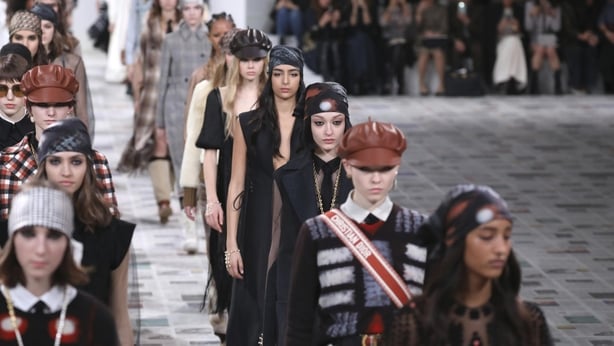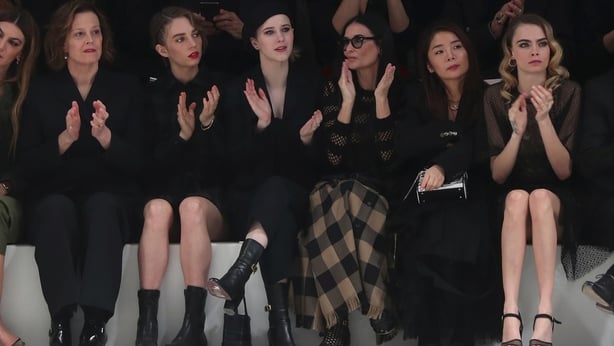Fewer than 24 hours after Harvey Weinstein was convicted of rape in Manhattan, Dior’s creative director Maria Grazia Chiuri made a powerful statement about consent and women’s rights, at the brand’s Paris Fashion Week show.
Showing at the Jardin des Tuileries, the Dior set featured a newsprint floor, while the room was strewn with bright and bold "illuminated manifestos" created by feminist and conceptual artist Claire Fontaine.

The neon phrases included ‘Patriarchy kills love’, ‘Women’s love is unpaid labour’, ‘Women raise the upraising’, ‘Patriarchy = Co2’, and most pointedly, considering the #MeToo movement and the Weinstein conviction: ‘Consent’.
It’s not the first time Chiuri – Dior’s first female director – has used feminist slogans in her designs; remember the white tee that said ‘We Should All Be Feminists’? While the Dior haute couture show in January took artist Judy Chicago’s question: ‘What If Women Ruled the World?’ as inspiration.
However, some have found a luxury fashion house using ideas around consent and feminism as a way to sell and market clothes, uncomfortable:
Since when is consent fashion?
— HeisenbergHattie (@HBergHattie) February 26, 2020
Dear @Dior can you stop capitalising on feminism? Its not a good look for you sweety😘
— Madeleine Holth (@MadeleineHolth) February 25, 2020
Listen, Dior can do whatever the hell it wants for it's shows and I’m not here to gate-keep what is the "correct" feminism. Just don’t think you’re doing anything insightful by putting up a neon sign.
— Lisa (@fashionpolisa) February 25, 2020
While others have fully welcomed the show’s message – and appreciated the clothes:
Consent is a political agenda? Women being strong is political? What are you even saying? Fashion designers can't have ideas about women's issues? My daughter has a fashion design degree, and she will love their message. And so do I.
— Mennonite Mom(she/her) (@mommy97giraffe) February 25, 2020
Gasp! Every. Single. One. Gorgeous.
— Jean Mobilia (@jeanmobilia) February 25, 2020
The iconic Dior Bar Jacket is simply everything. ❤️❤️
— Marie J. Miczak (@DoctorM) February 25, 2020
Sigourney Weaver, Demi Moore, Carla Bruni, Karlie Kloss, Cara Delevingne and Rachel Brosnahan all watched from the sidelines, while the clothes themselves were laden with 1970s vibes, and laced with notes of resistance and rebellion in their construction – loose, relaxed tailoring for women was a radical departure at that time from rigorously ‘feminine’ silhouettes.

There was also fringing and flares galore, silken bandanas in models’ hair, and baker boy caps, while checks – in red, white and black – ruled supreme.

